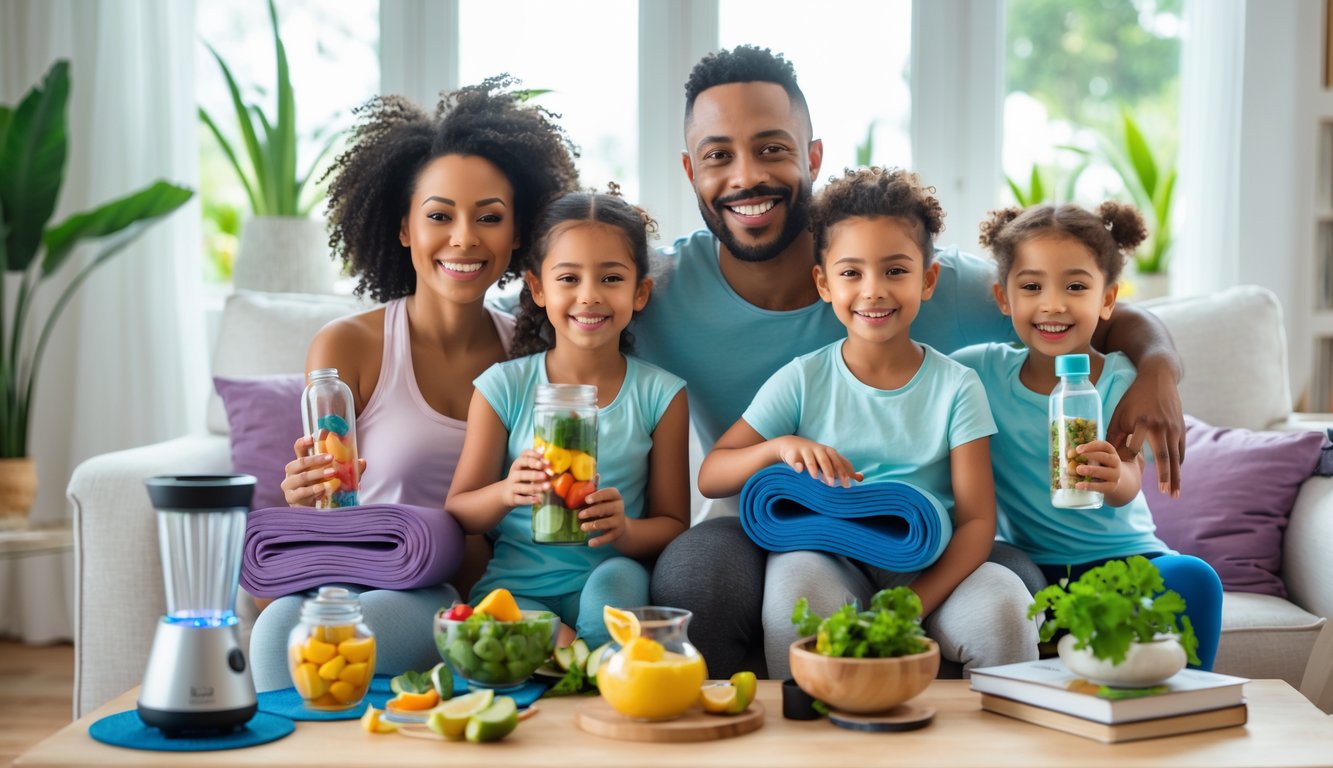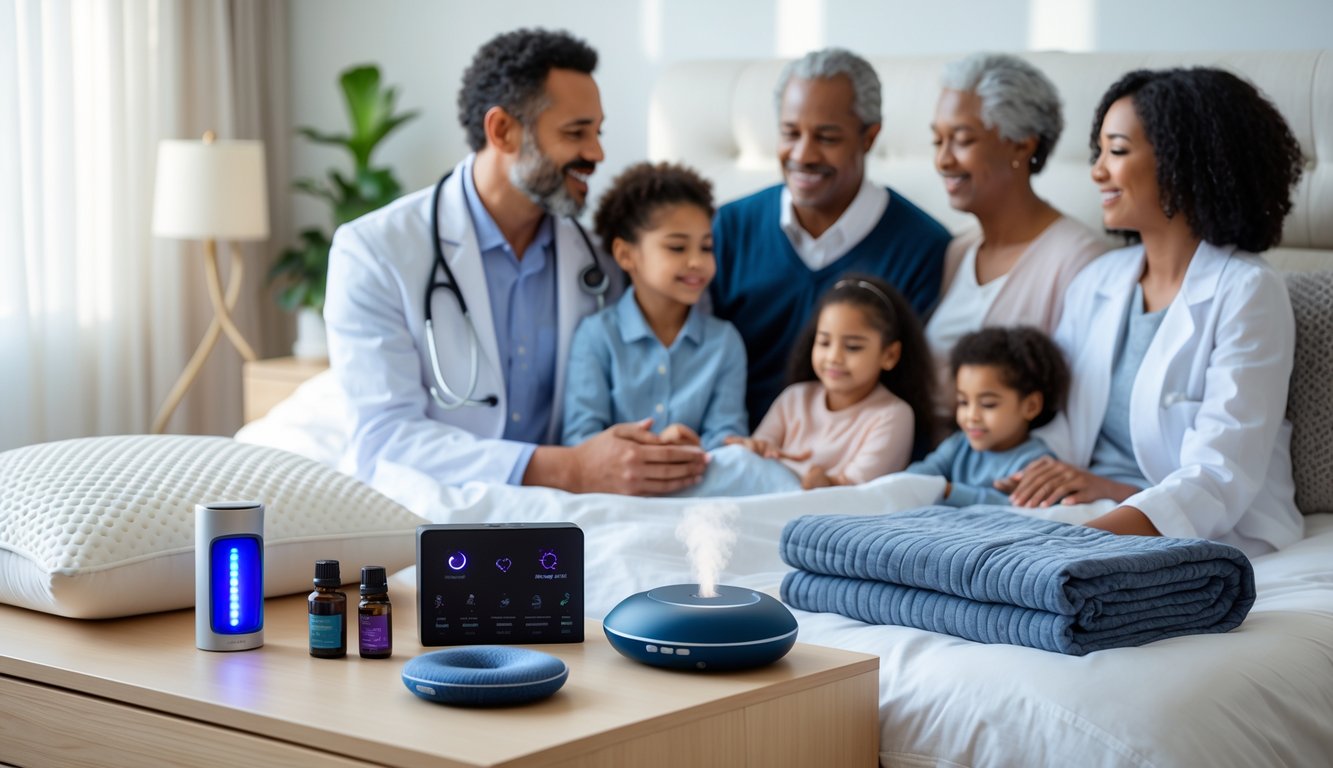
Woke up to a million group texts—someone’s aunt raving about her “physician-recommended” smart scale, cousin bragging about some meditation gadget that pings him at lunch, the whole family acting like “doctor-approved wellness gifts” are the second coming. Kind of cracks me up, honestly. But I mean, nobody’s fighting it when the proof’s right in your face: families actually start changing their routines just because some expert—okay, or a shiny ‘doctor tested’ sticker—says a gadget or app is legit. Saw this American Heart Association study claiming families with wearables logged 62% more steps each week. Meanwhile, my dad’s still clinging to his 1998 blood pressure cuff like it’s a family heirloom. Can’t win.
It’s weirdly contagious, honestly. Once a doctor’s name lands on a yoga mat or some mindfulness app, suddenly everyone wants in—even Uncle Mike, who claims he doesn’t “believe in wellness.” There’s this Prevention listicle with doctor-trusted picks, and I’m just wondering: Are we actually getting healthier, or is it just easier to win dinner-table arguments if Dr. Snyder okays blue-light glasses? And now Kombucha brew kits are apparently the new olive oil gift sets. No one warned me.
Headspace basically gets name-dropped as therapy now. Someone got Grandma a gut test kit for her birthday—she thought it was a clock. But here’s the part that’s actually wild: kids use this stuff just because it’s there. Gifted habits sneak in, not forced. Feels like cheating.
Why Doctor-Approved Wellness Gifts Matter for Family Health
If nobody yells “consult your doctor!” during the holidays, something’s off—my family’s got closets full of gadgets gathering dust, while my sister’s prescribed blood pressure monitor (not a stocking stuffer) gets more action than the Wii Fit ever did. It’s always the boring, doctor-endorsed stuff—yoga mats with actual knee support, allergist-rated air purifiers, humidifiers that don’t breed bacteria—that quietly nudge everyone toward real health instead of empty New Year’s promises.
The Role of Medical Expertise in Choosing Gifts
My cousin bought me a wearable fitness tracker because some influencer said steps were “everything.” Too bad it didn’t catch my arrhythmia or warn me about overtraining. Doctors? They spot anatomy fails in marketing pics in half a second (that “ergonomic” chair that actually wrecks your back, for example). Their picks usually skip the nonsense and focus on what’s actually helpful.
There’s this internist I know—Dr. Rana, MD, Cleveland—who says, “Even the simplest doctor-approved gift—a decent at-home BP cuff with a big digital readout—can mean early detection, actual peace of mind, and skipping a midnight ER run.” Only doctors care if your water bottle’s BPA-free or if “organic” oat milk’s got enough calcium for your bones, which nobody figures out until some random lab result. Evidence-based features aren’t sexy, but they just work.
Impact on Long-Term Health and Wellbeing
Nothing derails long-term goals like garbage advice from some random Instagram wellness page (ask anyone still drinking celery juice for “miracles”—I can’t). Giving wellness gifts that are actually science-backed—like a light therapy lamp for winter depression (NIMH says over 50% see improvement) or foam rollers physical therapists actually recommend—changes what people actually do, not just what they say they’ll do.
Every time I give my family something like a pediatrician-approved weighted blanket or vitamin D supplements (after blood tests, not just guessing), I watch people actually use them. These things don’t just sit around; they turn into real habits, cut down stress, help with sleep, and just anchor routines. Weird snowball effect—one good product at home and suddenly everyone’s asking, “What else can I tweak to feel better?”
Addressing Chronic Health Issues and Prevention
Every family’s got at least one silent diabetic, someone with creeping high blood pressure, migraines, or the “I don’t need a flu shot” crowd (honestly, that’s me arguing with my parents). Most random gifts get tossed, but doctor-approved stuff—like continuous glucose monitors, orthopedic sofa cushions, salt-restriction cookbooks—actually make it easier to manage chronic stuff.
My uncle (total doctor avoider, but trusts my oncologist friend when she hands him a skin check voucher) caught a sketchy mole early. That awkward gift probably pushed him to get a diagnosis he’d have skipped. Preventive things—smart scales with health apps, HEPA filters pulmonologists recommend—quietly tackle risks most people ignore until it’s almost too late. It’s not glamorous, but when a doctor’s in on it, avoidance drops and those “someday I’ll get healthy” promises sometimes turn into real data and, hey, maybe fewer prescriptions next year.
Sleep and Recovery Gifts: Supporting Rest and Rejuvenation

Last night I spent an hour wondering if I set my sunrise alarm right—family routines totally depend on sleep, and all these new gadgets and sleep kits aren’t just hype. They’re piling up in bedrooms everywhere and nobody’s getting less obsessed with recovery stats or that weird lavender spray. Half my wellness drawer is “physician-recommended” and yet my toddler’s still the only one sleeping through the night.
Sleep Medicine Essentials for Improved Sleep Quality
Nobody warns you how cutthroat bedtime gets when three people can’t sleep at once. Suddenly, doctor-approved stuff is in everyone’s Amazon cart—melatonin, magnesium, bargain-bin white-noise machines, and, for some, CPAP gear for sleep apnea. Still haven’t assembled one of those without cursing.
Did you see that JAMA study? Over 30% of adults get less than six hours a night. That’s not even counting the anti-snoring strip crowd. A pulmonologist I trust says “sleep hygiene” beats any supplement, but there’s a reason blackout curtains and memory foam pillows trend every March. Of course, I lost my own sleep mask the night after gifting my brother-in-law a fancy Tempur-Pedic one (he uses it as a cat bed now—whatever).
Insurance gets weird about prescription sleep meds versus over-the-counter stuff, so yeah, check first before you go wild. In my experience? The basic combo—mask, earplugs, weighted blanket—sometimes beats the fancy stuff, even if the studies say otherwise. Especially when you’re dodging grogginess at school drop-off.
Innovative Sleep Trackers and Monitors
Wearables are everywhere—Fitbit, Garmin, Oura Ring, Withings, all claiming they know your REM cycles, heart rate variability, recovery scores. I wake up exhausted and my phone says “Excellent Recovery.” Who’s lying, honestly? Smart beds change firmness all night, apps ping you for every twitch and call it deep sleep.
My neighbor texted me her sleep score at 4:15 a.m.—she still doesn’t know if she’s winning at rest or just losing at anxiety. The sleep tech market’s at $17 billion and climbing, but honestly, families just want to sleep. Hatch Restore 2? Doubles as a lamp and white noise machine, which my teen immediately set to “purple disco mode.”
University sleep labs can’t agree on what matters long-term—one neurologist told me, “Use these trackers as conversation starters, not gospel.” Families aiming for healthy habits just get new arguments (“You’re snoring again!”) but at least now there are charts, if anyone can actually read them.